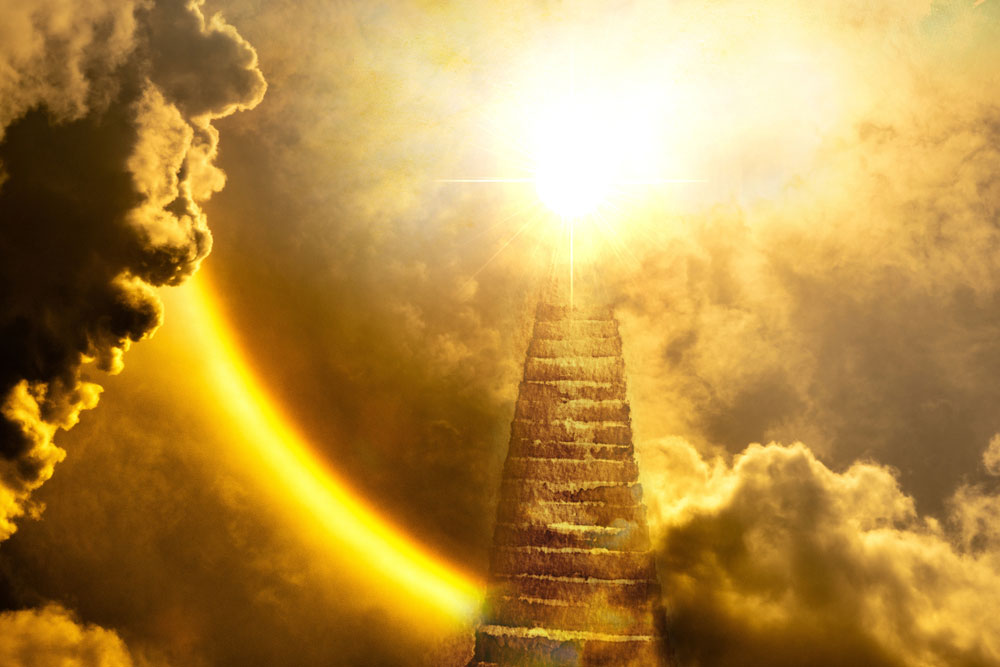The afterlife, or what we know as heaven has many similarities when it comes to the different ideologies around the globe. Heaven is also referred to as a “higher place”, or a place above. In contrast, hell would be an underworld, or a “lower place.” Each place is accessible through a set of various standards including divinity, goodness, piety, faith, salvation or simply the will of God, but never accessible to living humans. Some beliefs even believe that their will be a heaven on Earth. In this article, I will go over the more prominent religions in the world and their views on heaven.
Judaism

Although many prophets in the Hebrew Bible receive hints of what heaven could be, there is no real description of what heaven actually is as it is a place depicted inaccessible to humans. God is the supreme ruler of heaven and earth, yet technically, there is no place in the Bible that actually references haven as a place for the afterlife. The early books of the Bible shows more of a relationship with his people of Israel, which is on earth. Judaism as a whole is more concerned with life with God, not necessarily death.
Christianity

Still as vague as the Old Testament of the Bible, the New Testament gives some general insight into what heaven may be. Just like the Old Testament, God is still the ruler of both heaven and earth, but the authority over earth is challenged by Satan. Jesus consistently referred to heaven as the “Kingdom of God” or the “Kingdom of Heaven.” Remember when I wrote about heaven also eventually being on earth. Christianity leads the charge with belief as Christians proclaim that God is reigns in heaven, but will eventually establish his kingdom on earth. This is evident by the phrase from the Lord’s prayer, “Your kingdom come, thy will be done, on earth as it is in heaven.”
Islam

According to Islamic tradition, there are actually seven samāwāt or heavens according to the Qur’an. One interpretation of the heavens conclude that all of the stars and galaxies (including the Milky Way) are a part of the first heaven and beyond that are six other heavens that are yet to be discovered.
Islamic texts describe Jannah as a place where all wishes are granted and no negativity occurs. Those who reside in Jannah wear extravagant clothing and live in the lapse of luxury.
An afterlife destination of the righteous is known as Jannah (Garden of Eden), translated as paradise. The religion rejects the notion of original sin and believes that all human beings are born pure. If one’s good deeds outweighs their sin, one would gain entry into Jannah, People who live in the antithesis of righteous and all non-believers are doomed to the Hellfire. The more good deeds done by a person, the higher chance he/she has to get into paradise.
Buddhism

For Buddhists, there are several heavens that act as temporary spaces for those who’ve built up enough good karma. Those who’ve accumulated enough good karma can be reborn in one of these realms, but it is not permanent. As soon as the good karma runs out, a person will eventually be reborn into another realm as a human, animal, or other being. Because paradise isn’t permanent, Buddhists focus focus on escaping the cycle of rebirth through a mental state called Nirvana.
Hinduism

Heaven isn’t the final pursuit for those who practice Hinduism as heaven is related to the physical body. Heaven isn’t seen as a perfect place, but another name for pleasure and mundane material life. Swarga Loka, or The Good Kingdom, is the general name for heaven in where most of the Hindu Devatas reside with Indra (the king of Devas) and beautiful mortals. Much like Buddhism, in regards to the cycle of birth and death, Hindus believe any dweller of heaven and hell will be recycled into different planes and different forms per karma. The cycle is only broken through self-realization by the Jivatma called Moksha. Moksha is the liberation from the cycle of birth and death and the final communion with the Brahman as those liberated attains oneness with the Brahman.

